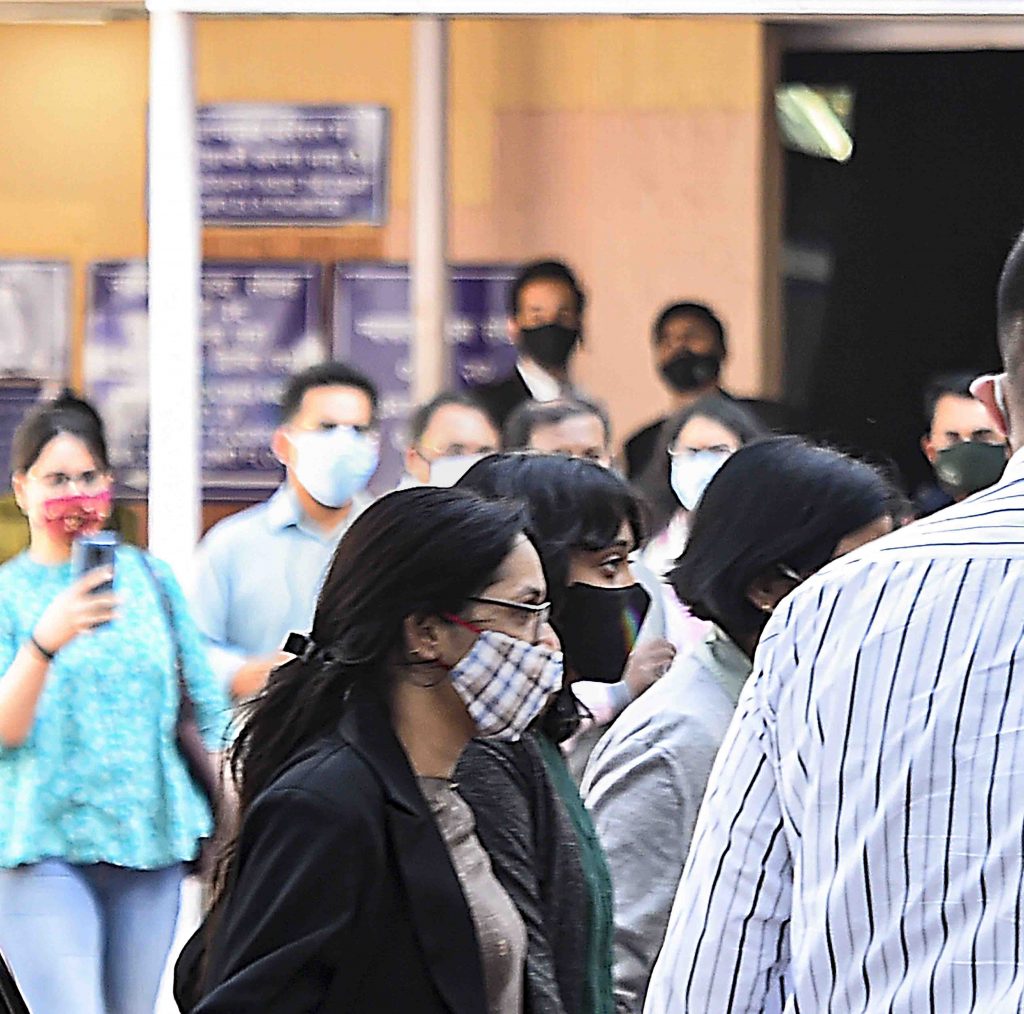New Delhi: In a blow to Delhi police, a court here Tuesday granted bail to climate activist Disha Ravi, arrested in connection with allegedly being involved in sharing a ‘toolkit’ on social media related to the farmers’ protest. The court termed evidence produced by police against Disha Ravi as ‘scanty and sketchy’. The court said there is nothing on record to establish any direct link between Ravi and pro-Khalistan activists of ‘Poetic Justice Foundation’ (PJF). It also said there is not even an iota of evidence brought connecting the perpetrators of the violence Janury 26 with the PJF or her.
Further, it observed that there is nothing on record to suggest that the activist subscribed to any secessionist idea and there is absolutely no link established on record between her and banned outfit Sikhs for Justice.
Also read: Toolkit case: Climate activist Disha Ravi sent to 1-day police custody
Ravi was arrested by a Cyber Cell team of the Delhi Police from Bangalore and brought to Delhi. She was currently in police custody. The judgement will be a huge relief to Ravi as well as two other co-accused, Nikita Jacob and Shantanu Muluk.

Additional Sessions Judge Dharmender Rana, who granted relief to Ravi on a personal bond of Rs one lakh and two sureties of like amount, noted that the accused had ‘absolutely no criminal antecedents.’
“Considering the scanty and sketchy evidence available on record, I do not find any palpable reasons to breach the general rule of ‘Bail’ against a 22 years old young lady, with absolutely blemish free criminal antecedents and having firm roots in the society, and send her to jail,” the judge said.
The judge said that perusal of the said ‘Toolkit’ reveals that any call for any kind of violence is conspicuously absent.
“In my considered opinion, Citizens are conscience keepers of government in any democratic Nation. They cannot be put behind the bars simply because they choose to disagree with the State policies. The offence of sedition cannot be invoked to minister to the wounded vanity of the governments,” the court said.
The court said the difference of opinion, disagreement, divergence, dissent, or for that matter, even disapprobation, are recognised legitimate tools to infuse objectivity in state policies.
“An aware and assertive citizenry, in contradistinction with an indifferent or docile citizenry, is indisputably a sign of a healthy and vibrant democracy,” the court said.
“The right to dissent is firmly enshrined under Article 19 of the Constitution. In my considered opinion the freedom of speech and expression includes the right to seek a global audience. There are no geographical barriers on communication. A citizen has the fundamental rights to use the best means of imparting and receiving communication, as long as the same is permissible under the four corners of law and as such have access to audience abroad,” the court pointed out.
It said that creation of a WhatsApp group or being editor of an innocuous Toolkit is not an offence. “Further, since the link with the said toolkit or PJF has not been found to be objectionable, mere deletion of the WhatsApp chat to destroy the evidence linking her with the toolkit and PJF, also becomes meaningless,” the court said.
While observing that there is nothing on record to suggest that the applicant accused subscribed to any secessionist idea, the court said ‘further, the prosecution has, except for pointing out that applicant/accused forwarded the toolkit to climate activist Greta Thunberg, failed to point out as to how the applicant/accused gave global audience to the ‘secessionist elements’.
The court said that it was conscious of the fact that it is very difficult to collect evidence for the offence of conspiracy. “I’m also conscious of the fact that the investigation is at a nascent stage and police is in the process of collecting more evidence, however, the investigating agency made a conscious choice to arrest the applicant accused upon the strength of material so far collected and now they cannot be permitted to further restrict the liberty of a citizen on the basis of propitious anticipations,” Justice Rana said.
It said conspiracy cannot be proved merely on the basis of inferences which have to be backed by evidence.
Meanwhile in a separate development, Muluk moved Tuesday a Delhi court seeking anticipatory bail. The application moved by Muluk is likely to come up for hearing Wednesday also before Judge Dharmender Rana. Muluk had got transit bail from Bombay High Court February 16 for 10 days. He, along with Ravi and another accused Jacob, was booked for alleged sedition and other charges.







































